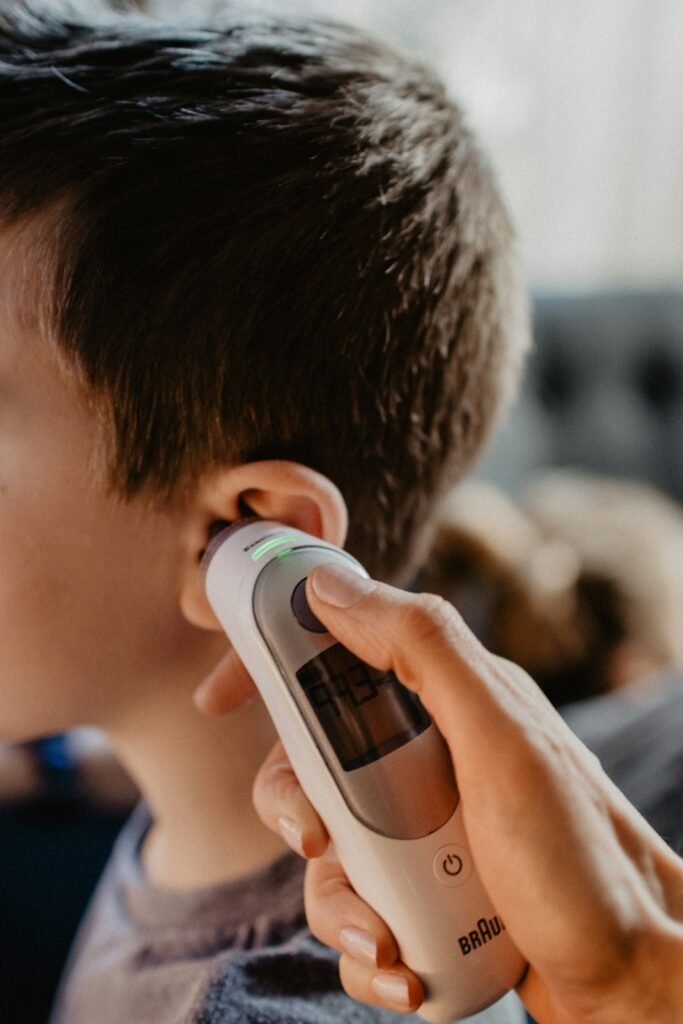In this article, you will discover the power of mindfulness techniques when it comes to coping with acute illness. Being faced with a sudden health condition can be overwhelming, but by practicing mindfulness, you can take control of your thoughts and emotions, finding peace and resilience in the face of adversity. We will explore different techniques that can help you stay present, reduce stress, and foster a positive mindset, ultimately aiding in your healing journey. So, let’s delve into the world of mindfulness and uncover the tools that can bring comfort and strength during challenging times.

Overview
Acute illnesses are sudden, intense, and often temporary health issues that can greatly impact your daily life. They can range from common illnesses like the flu or a cold to more severe conditions like appendicitis or pneumonia. Coping with acute illness is crucial for maintaining your overall well-being and improving your recovery process. One powerful tool in coping with these illnesses is the practice of mindfulness. Mindfulness refers to being fully present and aware of the present moment, without judgment. It allows you to observe your thoughts and feelings without getting caught up in them. Incorporating mindfulness techniques into your coping strategy can not only help alleviate physical and emotional distress but also promote a sense of calm and resilience.
Definition of Acute Illness
Acute illnesses are characterized by their sudden onset and short duration. Unlike chronic illnesses, which persist for an extended period, acute illnesses typically resolve within a few weeks or months. These illnesses can affect various parts of the body, including the respiratory system, digestive system, or musculoskeletal system. Symptoms can range from mild discomfort to intense pain or difficulty performing daily activities. It is essential to differentiate acute illnesses from chronic conditions as the coping mechanisms and treatment approaches may vary significantly.
Importance of Coping with Acute Illness
Coping with acute illness is a crucial aspect of managing your health and well-being. Acute illnesses can not only cause physical discomfort but also result in emotional and psychological distress. They may disrupt your normal routine, limit your ability to engage in activities you enjoy, and even cause feelings of isolation and frustration. By actively coping with acute illnesses, you can minimize these negative effects and promote a speedier recovery. Mindfulness techniques provide valuable tools for managing the physical and psychological symptoms associated with acute illness, allowing you to navigate this challenging time with greater ease.
Role of Mindfulness in Coping with Acute Illness
Mindfulness is a practice that involves deliberately focusing your attention on the present moment while acknowledging and accepting your thoughts, feelings, and bodily sensations. It allows you to cultivate a nonjudgmental awareness of your experience, which can be especially beneficial when coping with acute illness. By developing mindfulness skills, you can reduce stress, improve mental clarity, and build resilience in the face of illness. Mindfulness also enhances your ability to manage pain, regulate emotions, and promote a sense of overall well-being. Incorporating mindfulness techniques into your coping strategy gives you the tools to navigate the challenges of acute illness with greater ease and a more positive mindset.

Mindfulness Techniques for Coping with Acute Illness
Breathing Exercises
One of the simplest and most effective mindfulness techniques for coping with acute illness is deep breathing exercises. Deep breathing helps activate the body’s relaxation response, reducing stress and promoting a sense of calm. To practice deep breathing, find a comfortable position, close your eyes, and take slow, deep breaths in through your nose and out through your mouth. Focus on the sensation of the breath entering and leaving your body, allowing it to anchor you to the present moment. As you continue this practice, you will gradually notice your body and mind becoming more relaxed, easing the strain of your acute illness.
Body Scan Meditation
Body scan meditation is a mindfulness technique that involves systematically bringing your attention to different parts of your body and noticing any sensations or tension. This practice promotes deep relaxation and increases body awareness. To begin, find a quiet and comfortable space to lie down. Close your eyes and start by focusing on your toes. Gradually move your attention up through your body, noticing any areas of tension or discomfort and allowing them to release as you exhale. By regularly practicing body scan meditation, you can develop a greater sense of ease in your body and alleviate any physical discomfort caused by your acute illness.
Mindful Eating
Mindful eating involves paying close attention to the taste, texture, and smell of your food, as well as the sensations it creates in your body. This technique encourages you to slow down and savor each bite, fostering a deeper connection with the nourishment you provide your body. In the context of acute illness, mindful eating can be particularly helpful when dealing with loss of appetite or digestive issues. By consciously focusing on your meals and engaging your senses, you can enhance your enjoyment of food and potentially alleviate any discomfort associated with eating while ill.
Visualization Techniques
Visualization is a powerful mindfulness technique that involves creating vivid mental images to promote relaxation and healing. When coping with acute illness, visualization can be used to imagine the body’s immune system fighting off the illness or the affected area healing and becoming stronger. By engaging your imagination in this way, you can foster a more positive outlook on your recovery process and cultivate a sense of hope and resilience.
Journaling
Journaling is a valuable mindfulness practice that allows you to express and explore your thoughts and emotions freely. It provides an opportunity to reflect on your experiences and gain insights into your feelings and beliefs regarding your acute illness. By regularly writing in a journal, you can develop a greater understanding of your overall well-being, identify patterns in your symptoms, and find solace in expressing your concerns. Journaling can also serve as a record of your journey through illness, offering a sense of accomplishment and progress when looking back on your entries.
Gratitude Practice
Practicing gratitude involves intentionally focusing on and appreciating the positive aspects of your life, even during challenging times such as acute illness. By cultivating gratitude, you shift your focus from what is lacking to what is present and valuable. This shift in mindset can lead to increased positivity, improved emotional well-being, and a greater sense of resilience. Consider keeping a gratitude journal, where you write down three things you are grateful for each day. This simple practice can significantly enhance your coping abilities and overall outlook on your acute illness.
Progressive Muscle Relaxation
Progressive muscle relaxation is a mindfulness technique that involves systematically tensing and relaxing different muscle groups in your body to promote deep relaxation and reduce muscle tension. To practice progressive muscle relaxation, start by finding a comfortable position and taking a few deep breaths. Then, progressively tense and relax each muscle group in your body, beginning with your toes and moving up towards your head. As you release tension in each muscle group, visualize any stress or discomfort being released along with it. This technique can help relieve physical tension commonly associated with acute illness and promote a greater sense of relaxation and well-being.
Self-Compassion Meditation
When coping with acute illness, it is essential to show compassion and kindness towards yourself. Self-compassion meditation involves directing loving-kindness and compassionate thoughts towards oneself. This practice can help alleviate feelings of self-blame, frustration, or judgment often associated with acute illness. Find a quiet space, sit comfortably, and repeat compassionate phrases towards yourself, such as “May I be kind to myself” or “May I be patient and gentle with my body.” By offering yourself compassion and understanding, you create a supportive and nurturing space to navigate your acute illness with greater ease and self-acceptance.
Mindful Movement
Mindful movement involves engaging in physical activities with a heightened sense of awareness and presence. This can include practices like yoga, Tai Chi, or simply going for a slow walk in nature. Mindful movement allows for a deeper connection between your mind and body, promoting a sense of grounding and relaxation. When coping with acute illness, engaging in gentle, mindful movement practices can help alleviate physical discomfort, reduce stress, and promote overall well-being. Choose activities that suit your abilities and incorporate mindful awareness into each movement, focusing on the sensations in your body as you move.
Guided Imagery
Guided imagery is a mindfulness technique that involves listening to a recorded script or audio that guides you through a visual journey. This can be particularly beneficial when coping with acute illness, as it provides a mental escape from physical discomfort or distress. Guided imagery can transport your mind to a peaceful, soothing environment, helping to reduce anxiety, improve emotional well-being, and promote relaxation. Seek out guided imagery resources specifically designed for coping with acute illness to find the most relevant and suitable options for your needs.
In conclusion, coping with acute illness is an integral part of managing your health and well-being. By incorporating mindfulness techniques into your coping strategy, you can cultivate a greater sense of calm, resilience, and well-being. Whether through breathing exercises, meditation practices, visualization techniques, or journaling, these mindfulness techniques provide valuable tools for navigating the challenges of acute illness with grace and a positive mindset. Remember, you have the power to take an active role in your healing journey, and by embracing mindfulness, you can enhance your coping abilities and promote a more positive and fulfilling recovery process.

Hello, I’m Kelly Joseph, the author behind Optimum Mindset for an Optimal Lifestyle. Welcome to our website, where we dive deep into the world of mindfulness techniques and productivity hacks. With a mission to help you achieve a more fulfilled life, we offer a comprehensive guide to mastering the art of an optimum mindset. I am passionate about enhancing mental resilience, fostering positivity, and unlocking the potential for goal achievement. This site is a treasure trove of practical tips and strategies that will empower you to live life to the fullest. Join me on this journey of self-discovery and personal growth.

